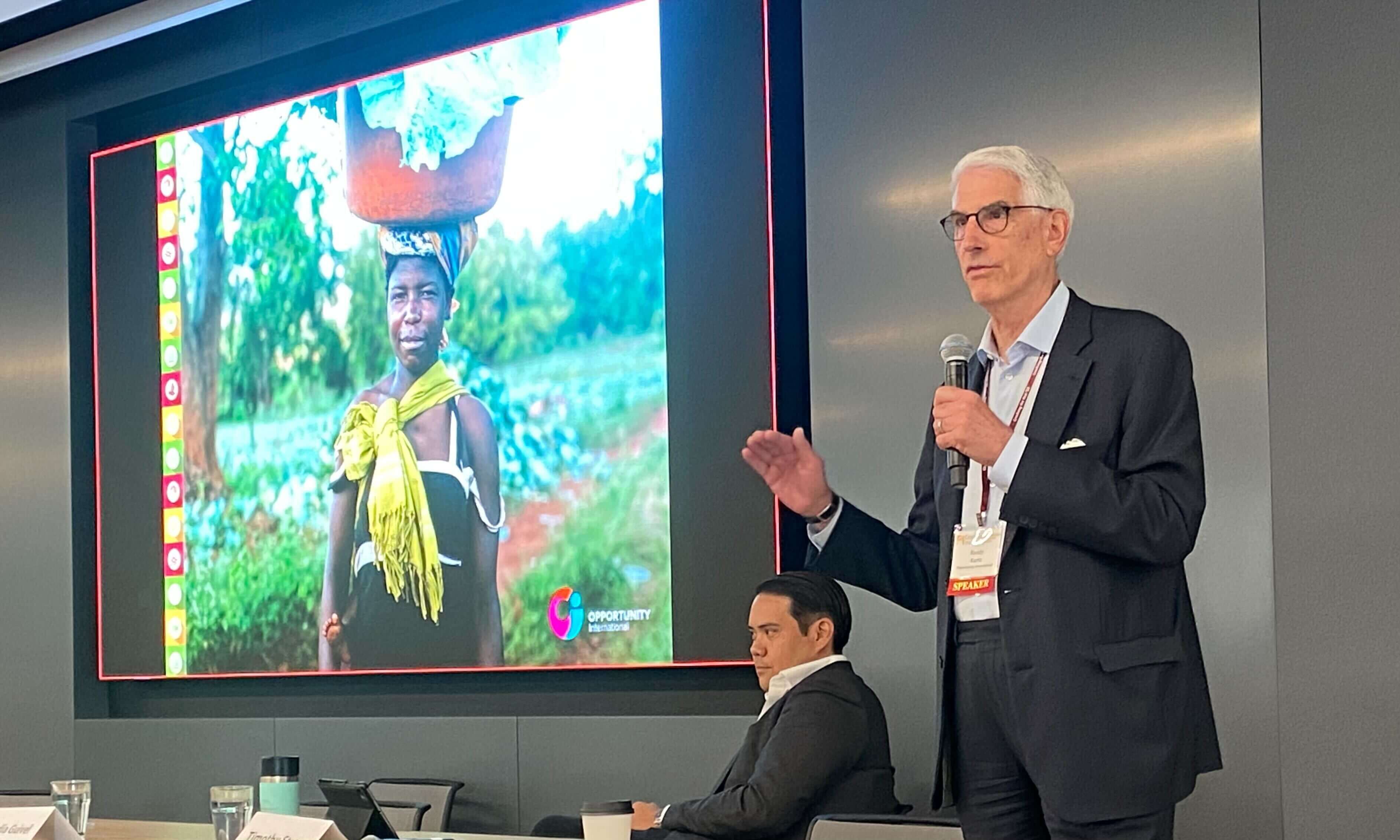Inflation, the war in Ukraine, and climate-related disasters have placed incredible strain on the global food system. For the world’s smallholder farmers—who make up two-thirds of those experiencing extreme poverty—these international events wreak havoc on their day-to-day lives.
At Opportunity, we see the positive impacts of investing in the world’s smallholder farmers. By expanding opportunities through financial services, training, and support, we have helped over 540,000 farmers in sub-Saharan Africa grow more and earn more.
“To move the needle on rural poverty and really have a chance at changing the landscape of rural poverty, investing in agriculture is crucial,” said Simona Haiduc, Managing Director of Strategic Partnerships. “We need to have a deep understanding of the challenges that these populations have and respond with individualized approaches.”
But without new interventions to address these crises, the progress made by the world’s smallholder farmers over the last two decades is at great risk.
Creating the conditions to better support farmers and transform their livelihoods to become more resilient requires a variety of tools, approaches, and financing—and it must be done at a global level.
This year’s Cracking the Nut Conference, hosted by Connexus in Washington D.C., allowed Opportunity International to connect with our peers from around the globe to further strengthen those efforts. In collaboration with organizations like the Visa Foundation, the International Fund for Agricultural Development (IFAD), the U.S. International Development Finance Corporation (DFC), CGAP, and Aceli Africa, we brainstormed new solutions and identified opportunities to increase investment in and support for our clients.
One of the most crucial needs identified was an increase in support for climate adaptation efforts. While resources are available for current humanitarian and longer-term climate mitigation efforts, there isn’t enough support for those facing these new disasters head-on. Led by Randy Kurtz, Executive Vice President of International Programs & Capital Solutions, and Mark Castellino Senior Vice President of International Business Development, Opportunity presented a panel discussion that laid bare the dramatic need for more private and public investments to equip smallholder farmers for the next emergency.
“The impact of catastrophic weather is even greater on our clients because there are no other support systems for them,” said Kurtz. “If a smallholder farmer in Malawi loses their crop, they don’t eat. Their kids don’t go to school. That’s what makes our work so important.”
We know that bringing more players to the table actually works because we have seen it first-hand. Opportunity’s Head of Agriculture Finance Tim Strong and Haiduc shared in another conversation that examined different business models which enable our success for the agriculture sector, while still ensuring outcomes and impact for smallholder farmers.
The panel highlighted how collaborative efforts can develop larger solutions that strengthen not only smallholder farmers, but entire economies.
“This conversation gives us a chance to ask ourselves how we can make investing in our clients more efficient, more effective, and more profitable,” said Strong. “Part of why I love knowledge exchanges like this conference is specifically because one size does not fit all, and we must be adaptive in our investments based on both our limitations and opportunities.”
With dozens of private, public, and nonprofit partners coming together for two days, the event provided a collaborative learning space, sharing experiences and best practices on innovative approaches—and strengthening the foundation of our combined missions to support a stronger food system that serves all of us.
“This is the challenge of our lifetimes,” Castellino said. “But getting a glimpse of what the potential is to meet that challenge is exciting.”


